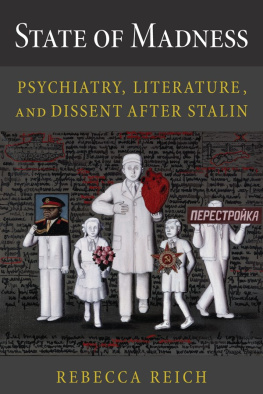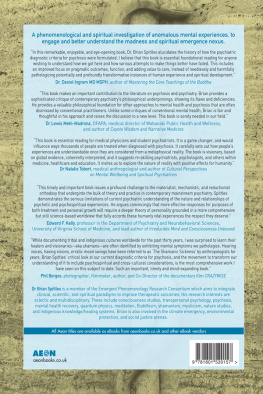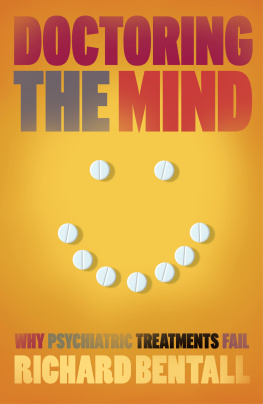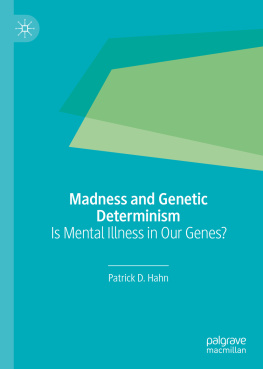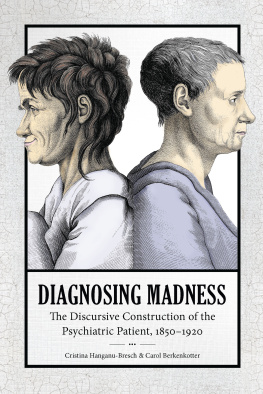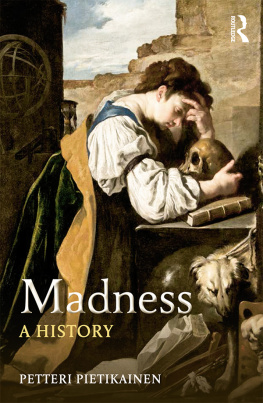This ebook contains special characters that may be unreadable on some devices.
Northern Illinois University Press, DeKalb 60115
2017 by Northern Illinois University Press
All rights reserved
Printed in the United States of America
26 25 24 23 22 21 20 19 18 17 1 2 3 4 5
978-0-87580-775-1 (paper)
978-1-60909-233-7 (e-book)
Book and cover design by Yuni Dorr
Every effort has been made to contact the copyright holders of the poems and images reproduced in this study. In case of any oversight, adjustments may be made to future printings.
Library of Congress Cataloging-in-Publication Data is available online at http://catalog.loc.gov
ACKNOWLEDGMENTS
A book that stands at the crossroads of disciplines must look in many directions for guidance and inspiration. While conducting research in Russia, Ukraine, the United Kingdom, and the United States, I enjoyed the support of the Andrew W. Mellon Foundation/American Council of Learned Societies Early Career Fellowship Program; the Foreign Language and Area Studies Fellowships Program; the Davis Center for Russian and Eurasian Studies and the Graduate School of Arts and Sciences at Harvard University; and Jesus College at the University of Cambridge. I also benefited from the archival expertise of Tatiana Khromova of the Memorial Society Archive; Stanley J. Rabinowitz of the Amherst Center for Russian Culture; and the staff of the Beinecke Rare Book and Manuscript Library at Yale University, the Hoover Institution Archives at Stanford University, and the State Archive of the Russian Federation.
Portions of chapters first appeared in article form as Inside the Psychiatric Word: Diagnosis and Self-Definition in the Late Soviet Period, Slavic Review 73, no. 3 (Fall 2014): 56384, published by the Association for Slavic, East European, and Eurasian Studies, and Madness as Balancing Act in Joseph Brodskys Gorbunov and Gorchakov, Russian Review 72, no. 1 (January 2013): 4565. I thank those journals for granting me permission to rework the articles here, and their editors and anonymous readers for providing such valuable feedback. I am also grateful for the interest, questions, and critiques I received from the organizers, discussants, fellow presenters, and audience members of the conference From the New Socialist Person to Global Mental Health: The Psy-ences and Mental Health in East Central Europe and Eurasia at the University of Chicago; several annual conferences of the Association for Slavic, East European, and Eurasian Studies and the American Association of Teachers of Slavic and East European Languages; the workshop Interrogations: Psy Sciences, Coercion and Confession in a Time of Cold War convened by the Hidden Persuaders project at Birkbeck, University of London; and Cambridges public lecture series Resistance in Russia and Eastern Europe.
This book has benefited from countless acts of personal generosity and assistance, in particular by the staff and faculty members of Harvards Department of Slavic Languages and Literatures and of Cambridges Department of Slavonic Studies. Conversations with teachers, students, and colleagues at Harvard, Cambridge, and beyond stimulated my thinking while allowing me to work in an atmosphere of intellectual exploration and critical rigor. This atmosphere followed me to Northern Illinois University Press, where Amy Farranto and Nathan Holmes deftly facilitated the books transition from manuscript to print. For their helpful suggestions at various stages, or for their comments on presentations or on drafts of articles or chapters, I thank Alexander Etkind, Rory Finnin, Michael Flier, Simon Franklin, Emily Greble, Susan Larsen, Daniel Pick, Rachel Polonsky, Eugene Raikhel, Kylie Richardson, Sasha Senderovich, Dennis Tenen, Yuri Vedenyapin, Chris Ward, Emma Widdis, and Benjamin Zajicek. I am profoundly grateful to Angela Brintlinger and Benjamin Nathans for their detailed and constructive critiques of the entire manuscript. The late Svetlana Boym was a life force and a formative influence on my work; at Harvard, she and Jonathan Bolton did much to lay the groundwork for this study. William Mills Todd III also sharpened my arguments while setting a lasting example of collegiality and mentorship. Above all, I am indebted to Stephanie Sandler, who, in addition to supervising the projects early stages, has graciously continued to share her erudition and counsel over the succeeding years.
While my brothers Daniel Reich and David Reich pursued careers in medicine and science, I specialized in literature and cultural history. Yet as I deepened my investigation of psychiatry, literature, and dissent in the post-Stalin period, I discovered points of contact among our disciplines that have enabled me to draw upon their knowledge. Vulf Slobodkin and Natalia Tomilina made Moscow feel like home while personifying for me an ideal union of lives devoted to poetry and medicine. My gratitude to Daniel Beer goes beyond words, not only for his clear-eyed readings of my final drafts but most of all for his encouragement, companionship, and love. Our daughter Naomi was born as the manuscript neared publication, enriching us immeasurably. This book is for my father, Walter Reich, whose materials and own work on Soviet psychiatry inspired the project, and for my mother, Tova Reich, who read it again and again and who remains my first teacher in writing and life.
AUTHORS NOTE
Transliteration from the Russian follows the Library of Congress system. Exceptions in the main text include place names and names of people who broadly published in the English language (Joseph Brodsky, Yuri Glazov) or whose names are Russian renderings of foreign names with English-language analogues (Roy, Natalie). Names of certain well-known figures appear in their most familiar English-language form (Fyodor Dostoevsky, Leo Tolstoy).
Poetry that constitutes the main subject of analysis is quoted in the Russian original followed by English translation, while works that consist entirely or primarily of prose are quoted in the English alone. The sections of Venedikt Erofeevs play Walpurgis Night, or The Steps of the Commander in which the characters speak in iambic pentameter are thus treated as parts of a work of prose and presented only in English. Excerpts from Brodskys poem Gorbunov and Gorchakov use quotation marks within square brackets to indicate speech that begins earlier or ends later than the given section. All translations into English are the authors own unless otherwise indicated.
INTRODUCTION
In 1970, the biologist and writer Zhores Medvedev was forcibly confined to the Kaluga Psychiatric Hospital. In addition to his scientific research, Zhores had rankled the authorities by writing several studies of censorship and science in the Soviet Union that had circulated from hand to hand through the clandestine channels of samizdat. Aware of reports that Soviet citizens who expressed unorthodox views were being declared mentally ill and hospitalized, his twin brother, the historian Roy Medvedev, chronicled his efforts to free Zhores in a samizdat bulletin of his own. By positioning any account that he might write as a successor to Chekhovs 1892 story Ward No. 6, Zhores challenged his psychiatric diagnosis through the prism of literature.
Nonconformist writers like Zhores and Roy Medvedev invoked a literary tradition of psychiatric narratives through which to imagine and interpret their own eras experience of pathologization and treatment. Chekhovs Ward No. 6, which features heavily in that tradition, follows the fate of Andrei Ragin, a physician who once tended zealously to his patients but has since lost faith in his profession. Ragin runs a provincial hospital with a psychiatric unit in its sixth ward; there he makes the acquaintance of the university-educated patient Ivan Gromov. Concluding that Gromov is in fact far clearer-headed than those whom society considers sane, Ragin begins to visit Gromov regularly. The authorities respond by confining Ragin to the sixth ward, and the story concludes with the physician being beaten to death by Nikita, the orderly whose brutality he had overlooked in his former role as head of the hospital. Ragins intellectual and moral reawakening thus progresses side by side with a descent into what the physician calls the vicious circleor, in Russian, the enchanted circle (

